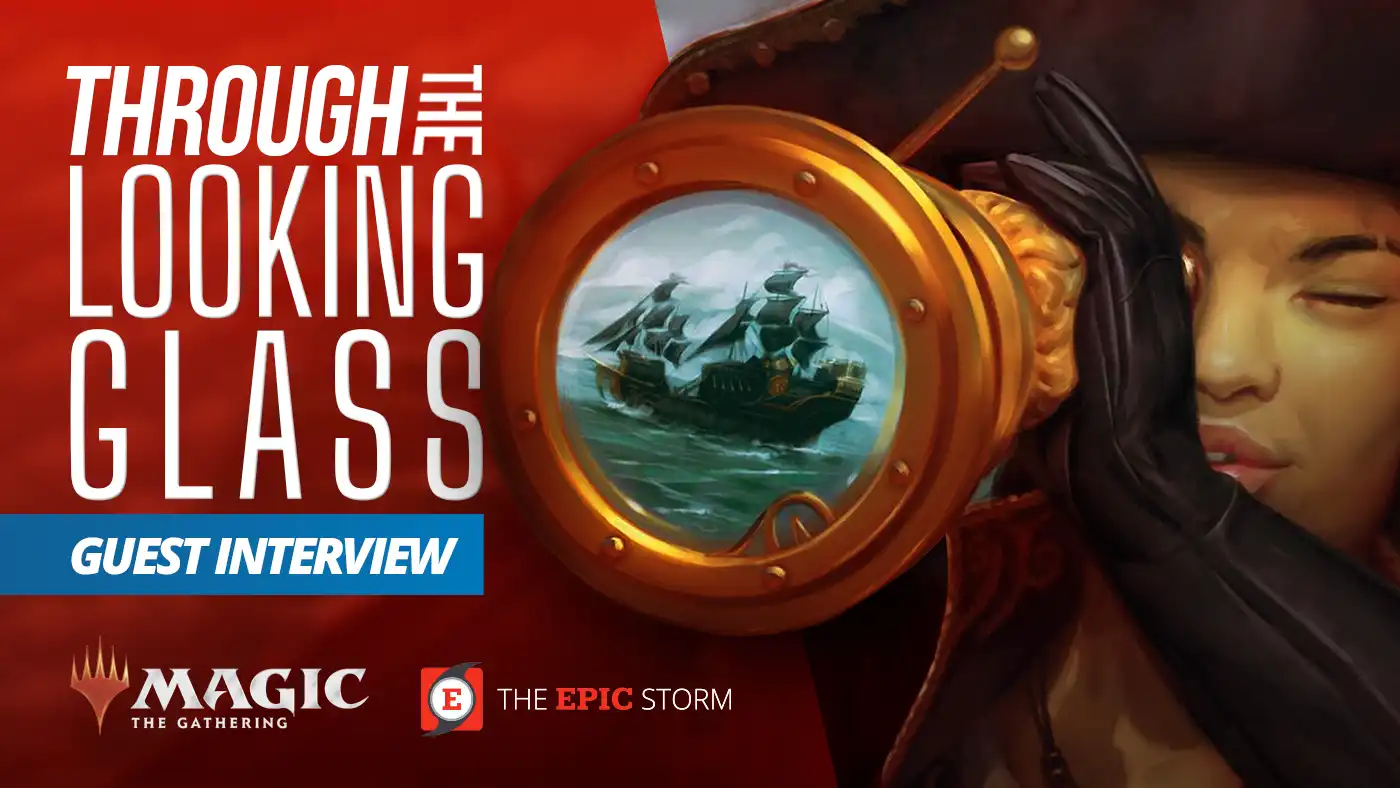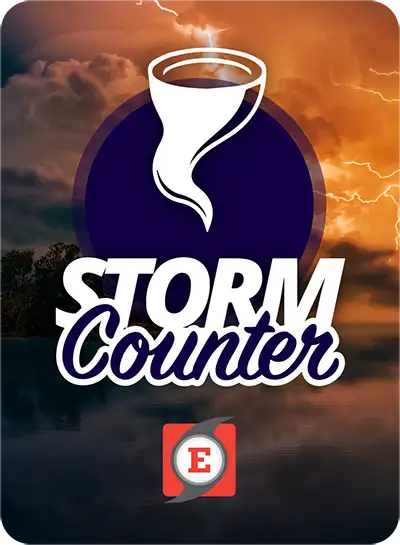
Special Guest
A few words on Bryant Cook:
(Twitter: @BryantACook | MTGO:Bryant_Cook)
Bryant Cook has one Grand Prix Top 8 as well as nine Star City Games Top 8s (two wins). You can find Bryant's daily sweet Storm videos for every format on our YouTube Channel, including some recent videos featuring The EPIC Storm 13.8! Bryant is also a host of The Eternal Glory Podcast, a Web Designer, and an avid New York Mets fan.
If the discussion is focused around [[Veil of Summer]] against [[Orim's Chant]]/[[Silence]], it's interesting. [[Veil of Summer]] prevents the opponent from casting a lethal [[Tendrils of Agony]] which would mean that the focal point of the match-up becomes centered around [[Empty the Warrens]] or those who don't value their sideboard space enough to play [[Grapeshot]]. Alternatively, [[Orim's Chant]]/[[Silence]] stops the opponent from playing the game — you can see where one plan might be better than the alternative. It's worth noting, if you're facing a Veil of Summer build with the [[Orim's Chant]] lists you can always create a horde of [[Goblin Token]]s and then pass the turn. In the opponent's upkeep, cast [[Orim's Chant]] preventing the opponent from doing anything meaningful. If they happen to have cast [[Empty the Warrens]] previously, you can use the Kicker ability.
There are clear identifiers such as [[Chrome Mox]], [[Rite of Flame]], or [[Burning Wish]] that tell a person if they're playing against The EPIC Storm. What's important to know are the subtle plays, “[[Bloodstained Mire]], pass.” Out of common decks in Legacy, this is really only Reanimator (2 copies) and TES (4 copies). While Reanimator is more popular, TES is more likely to open with this line, so I'd raise an eyebrow. That said, these sort of lines if they're coming from Storm telegraph holding open a [[Veil of Summer]] or a [[Orim's Chant]]/[[Silence]]. In the mirror, I tend to want to play out my artifact mana since there's a reasonable chance you'll lose your resources to an [[Echo of Eons]] from the opposing side. As for hiding information, playing the secondary fetch lands like [[Scalding Tarn]] or [[Volcanic Island]] can obviously get you some mileage but then you need to commit to the lie and not play anything else out.
The die roll. Being on the play is the biggest factor in my history of playing the deck — some data for you: In 168 matches, I am 105-63 for a 62.50 winning percentage. In games in which I am on the play, I am 63.21 percent favored to win, and on the draw, it goes down to 51.57 percent. It would be disingenuous if I said experience plays little factor, as it is meaningful. But a large number of my losses are often me being unaware that I am playing the mirror match and getting blown out of the water. As long as the opponent is reasonably competent, the die roll will outweigh any small advantages the mirror match knowledge would provide.
I'm not going to list a seven-card hand, but you would like a hand that is capable of putting [[Peer into the Abyss]] onto the stack followed by [[Ad Nauseam]] on the first turn. If this isn't within the realm of reason, being able to hold open [[Orim's Chant]]/[[Silence]] on the play can be highly effective. I'm also a big fan of any hand that can [[Echo of Eons]] on the first turn to give the opponent a forced mulligan while proving the opportunity to advance your own game plan by winning or a large [[Galvanic Relay]]. In post-board games, it's mostly the same. The texture of the matchup doesn't change much.
(adsbygoogle = window.adsbygoogle || []).push({});
-3 [[Galvanic Relay]], +3 [[Thoughtseize]]. It does not change.
It's very difficult, but there are a few ways: 1. Casting [[Thoughtseize]] to force the opponent to cast or lose their [[Orim's Chant]], this will create a window for your [[Silence]]-effect to take over the game. 2. [[Silence]] to draw out any opposing copies. 3. [[Echo of Eons]] + [[Lion's Eye Diamond]] as you've done something to change the composition of each player's hand and minimize the effect of an opposing [[Silence]].
This is very contextual, it's hard to provide a real answer to this. I will say that players in general, should try to take unique effects rather than redundant tutors or mana. If someone has a [[Brainstorm]] or a pair of [[Wishclaw Talisman]], you take the [[Brainstorm]]. [[Lion's Eye Diamond]] is arguably the most powerful effect in the deck and there are only four copies of those. Typically, it's best to play to that math but it could always change based on the hand.
I would tend to avoid these as much as possible. [[Galvanic Relay]] might be okay on the play in game one, but I wouldn't trust it. It's worth noting that [[Orim's Chant]]/[[Silence]] are especially back-breaking against [[Galvanic Relay]] as they stop you from using those cards.
[[Echo of Eons]] is a non-deterministic or high-variance engine, so there's some risk involved. By playing it before your opponent takes a turn, you're increasing its value as a random hand is less likely to benefit the opponent while you've accrued some value. As mentioned previously, you can also use it as an agent of chaos against an opponent who is holding open an Orim's Chant to get them to cast the spell while changing the context of your hand. The most important thing is that [[Echo of Eons]] allows you to mulligan very aggressively to a hand that takes action as there's a back-door reset the game button within your deck.
[[Orim's Chant]] can complicate things, but pretty much never.
The EPIC Gamble tends to be faster, but weaker to our interaction while being unable to meaningfully interact with us. While Ad Nauseam Tendrils is slower and has less impactful interaction in the mirror than The EPIC Storm. In the pseudo-Storm mirror, TES tends to be king — that said, it's such a small portion of the metagame that this is mostly meaningless.
(adsbygoogle = window.adsbygoogle || []).push({});
I believe the actual best skill in the mirror match is knowing how to mulligan. Stay tuned for my article on how to mulligan better in the mirror later this month!
I'd like to thank Grant for all of his hard work on the TES Team and for having me as their final guest. We'll miss Grant's knowledge and experience on the staff. I'd also like to thank the team's unsung hero — Mitch Blankespoor, our editor. He spends a lot of time cleaning up our mess in the shadows. We appreciate you Mitch. I would not like to thank Alex McKinley at this time.
I would like to take a moment to thank Bryant Cook for joining Through the Looking Glass and providing some spectacular responses on The EPIC Storm mirror match-up.
Until next time, keep storming!










